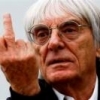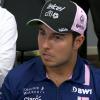If they think he's good then I don't see why not. McLaren did it with Hamilton in 2007 and look how that panned out.
I think this whole "apprenticeship in a lower team" thing is well overdone. If a driver is good he should be able to adapt. If he's not then no amount of learning years will make him good enough
It depends on what you mean with adapt. A fast rookie will do well but also make mistakes. Leclerc is a good example. As good as he is, another year at Sauber would have done him good I think. And most people believe Kvyat, Gasly and now Albon have been promoted too soon.
If you look at all the great drivers of the recent past...
Hamilton: the best prepared rookie ever.
Rosberg: had several years at Williams.
Vettel: raced for Toro Rosso.
Button: needed several years before maturing at BAR.
Raikkonen: had a season at Sauber.
Alonso: had a season at Minardi and a testing year with Renault.
Hakkinen: had a couple of seasons in a Lotus before slowly becoming competitive with McLaren.
Schumacher: was a Mercedes junior in WEC and had several years with Benetton before they cheated themselves to a title.
Hill: was a Brabham driver and Williams test driver before getting the Williams drive.
Villeneuve: was a successful F1 rookie but had CART experience and a decent Williams test programme.
Prost: had a year with McLaren.
Senna: had a year with Toleman.
Mansell: had multiple years with Lotus as #2 before stepping in a Williams in 1985.
Lauda: had his learning years with BRM.
Piquet: was the #2 to Lauda at Brabham before (unexpectedly) become #1 in 1980.
The point is that while all of them showed their potential, practically all had some time in a mid-grid or backmarker team where they could learn F1 without pressure. And arguably, they all were the better for it.
Hamilton is perhaps the greatest exception and he was fully embedded at McLaren and had more testing miles than any other rookie. And even he needed a few years to reach his full potential.
































